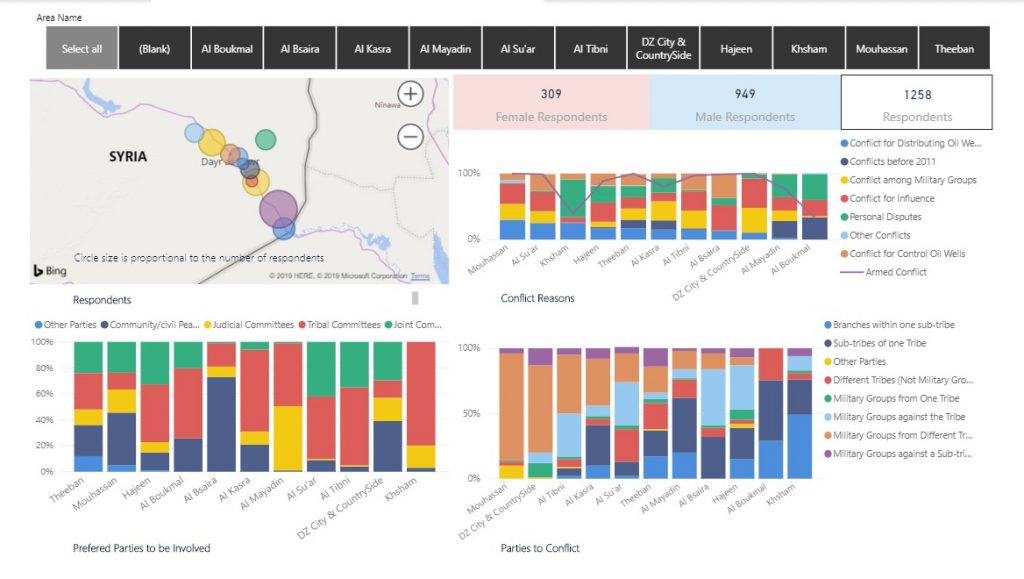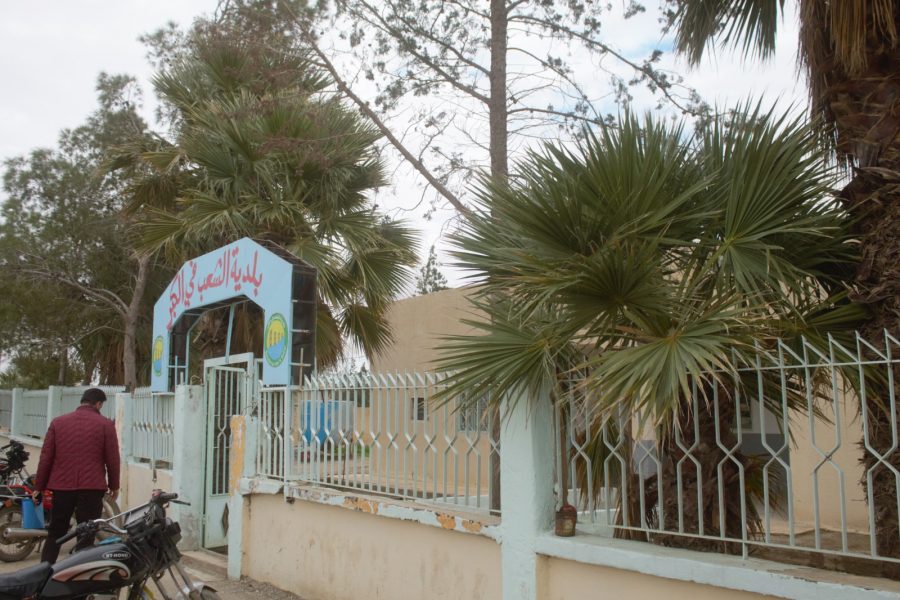In the light of growing questions regarding the way to achieve peace in Syria on both local and national levels following years of war that ravaged and cracked the Syrian society on ethnic, geographic, and sectarian bases, seeking for answers and developing methodologies by which sustainable peace strategies could be set forth, are two important issues that are considered the important and complicated at present.
On the national level, the continuous negotiations, which have been started for years, have not yielded reasonable solutions for the Syrians to end the war, secure a safe return for the refugees, and reach a transition from the totalitarian authority to a democratic and pluralistic rule.
On the community/local level, civic groups and initiatives are engaged in broad-based and complicated discussions on the manner of dealing with the local conflicts and solving what can be solved away from waiting for the denouement at the national level, where no signs indicate a close reach to achieve peace.
Justice in Syria is a must in order to reach a just and lasting peace, providing that justice is not limited to accountability, which many international and local parties are working on. Yet, working on reaching possible justice for the conflict victims contributes to reaching some sort of local stability and saving the local powers from being consumed in endless conflicts.
Many conflicts could be solved as their drivers are not existing anymore. Moreover, the populations’ desire to reach peaceful solutions would considerably help in finding solutions.
On the basis of the role of the Syrian civil society in the devastating war, and being one of the closest party to the population that has the ability to hear their voices, engaging them in dialogues and decision making processes and assesing their needs, Justice for Life, in collaboration with partner organizations, is implementing a project to establish local peace committees in Deir Ezzor.
A survey, composed of two parts, was conducted in Deir Ezzor. The first partof the survey, entitled “Who represents you?”, is about the persons who should be selected by the local community to be representative to achieve community peace. The second part of the survey, entitled “The most prominent conflicts” is about identifying the most prominent conflicts occurring in the province along identifying conflict parties, conflict reasons, and best solutions to solve them.
The subjects surveyed that were reached by JFL researchers totalled 2478 within 11 communities, where many challenges were faced by the team such as; difficulty of movement in some sub-districts at night, weak internet connection in some areas, and vast areas of other sub-districts, which resulted in some delay in completing the survey.
The survey included the participation of 609 women, which count for about 25% of the total respondents. The most prominent results of the survey were; giving trust to the notables, active figures, and the intellectuals as persons who are able to represent their communities. In parralel, members of civil councils and military leaders were not granted this trust. The majority of the repondents stated that they prefer a peaceful solution rather than a military one, and a desire to see initiatives based on local hands and tools to get rid of conflicts and their consequencies.
The paper presents multiple recommendations such as; the continuation of marginalizing local communities by authorities in place may create a space for extremist groups to market their narrative regarding the failure of the replacing powers in imposing security and solving the basic problems. This might create a new entrance for such groups to win the local public opinion. Therefore, there is a need to support the local efforts for peace with executive mechanisms by the local authorities in a manner that ensures the application of agreements, and the need of dealing with the local conflicts in an organized way with means that are accepted locally. Accordingly, working with new means for solving the conflicts requires a broad-based discussion with the local community.
Read more: Deir Ezzor and Peace













